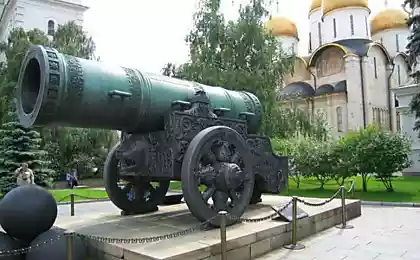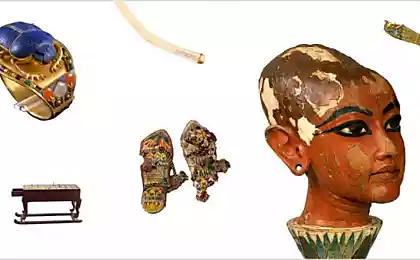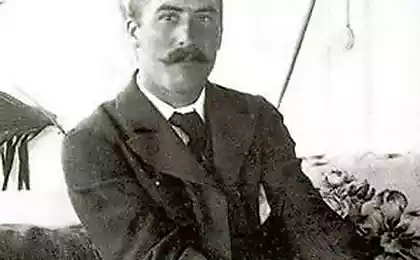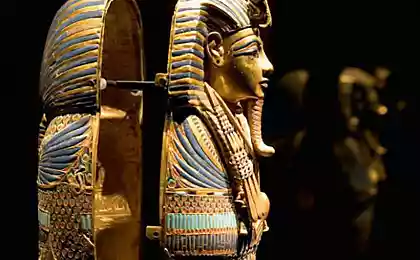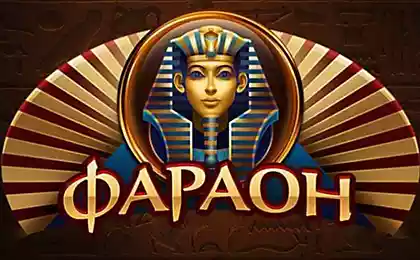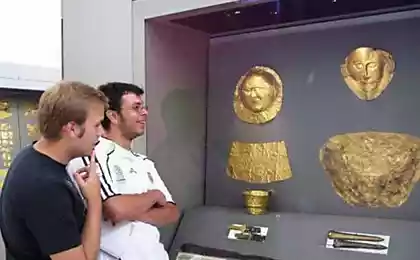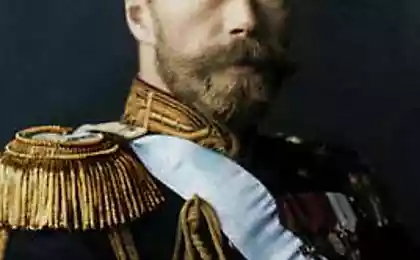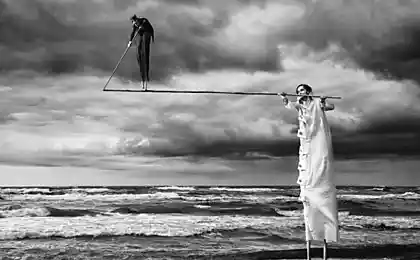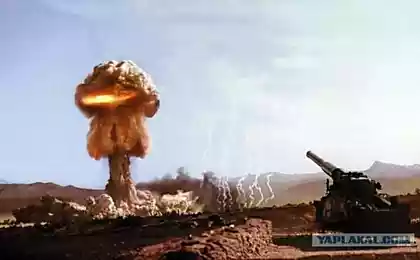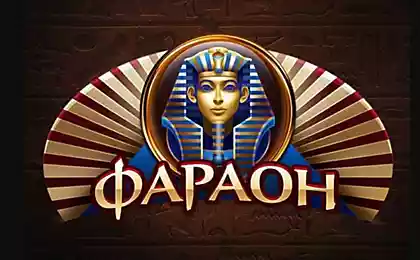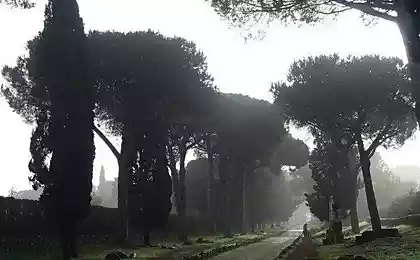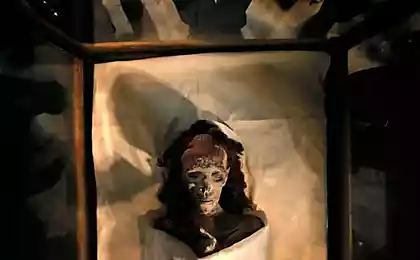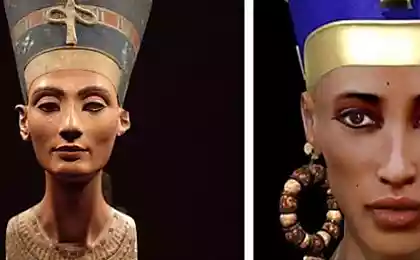1813
The tomb of Tutankhamun (40 photos)
One traveler told the story of the tomb of Tutankhamen and provided a photo-report on its tour.
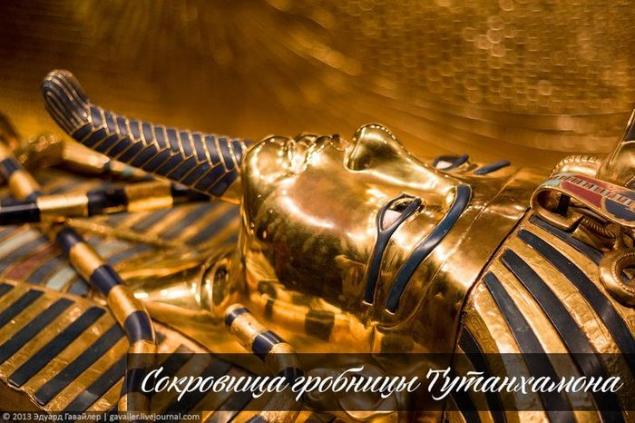
Tomb Tutanhomona, after more than three thousand years come down to us almost intact, is considered one of the most important discoveries in archeology. Since 1922, when Howard Carter discovered the burial in the "Valley of the Kings" near Thebes, a little-known Tutanhomona he became perhaps the most famous pharaoh in history. Inside the tombs of British Carter and Lord Carnarvon found numerous decorations, household items, furniture, works of art of that era, as well as the golden sarcophagus weighing more than 110 kilograms from the mummified body of the young king of ancient Egypt. From March 9 to September 1, 2013 the sarcophagus Tutanhomona and treasures from the tomb can be seen in a unique exhibition in Berlin. Interesting? Then let's go inside.
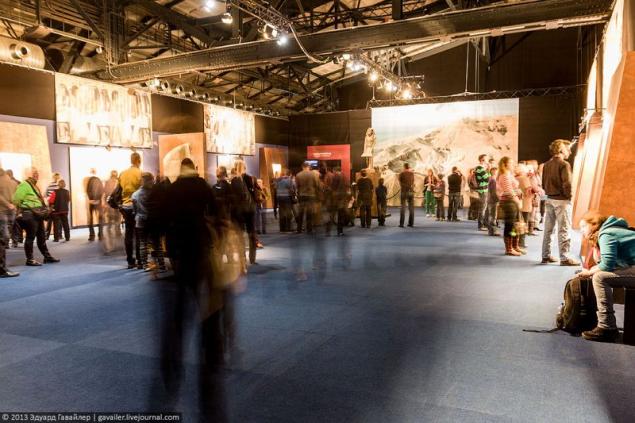
The exhibition "Tutankhamun. His Tomb and Treasures "(it. Tutanchamun Sein Grab und die Schätze, the official website: www.tut-ausstellung.com ) located in the space of 4000 square meters in the Arena Berlin (Eichenstraße 4 12435 Berlin). Here last year held an international convention tattooists.
At the entrance are given audio guides (available languages: German, English, French and Spanish), which accompany visitors while on the show. Material informative, very many different subtleties and details, all listening with great interest.
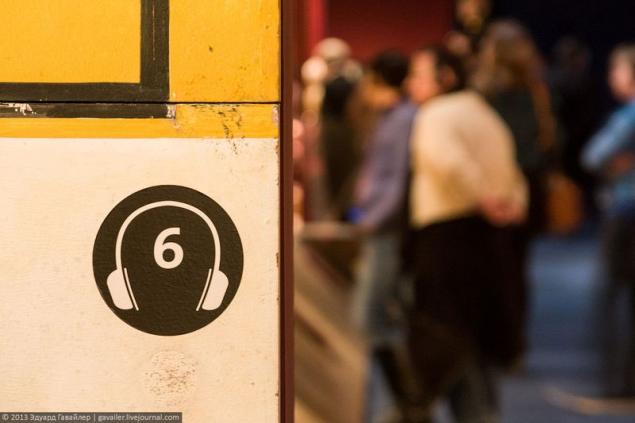
Yet going inside the main exhibition area, we plunged into the atmosphere of ancient Egypt.
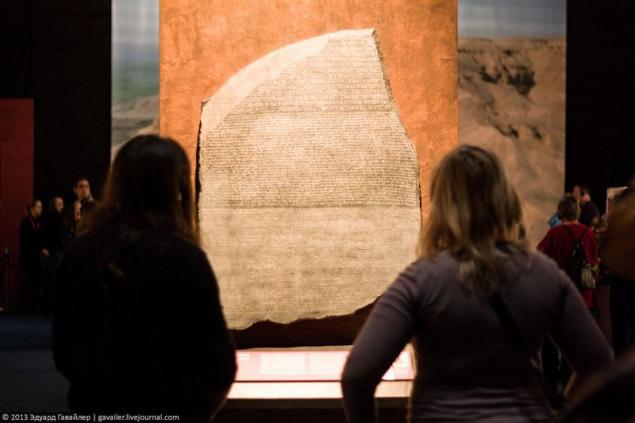
Rosetta Stone - stove, found at the end of the XVIII century in Egypt near the town of Rosetta. It knocked identical within the meaning of the text in three languages: two ancient Egyptian and Greek. It was he who served as a starting point for deciphering Egyptian hieroglyphics.
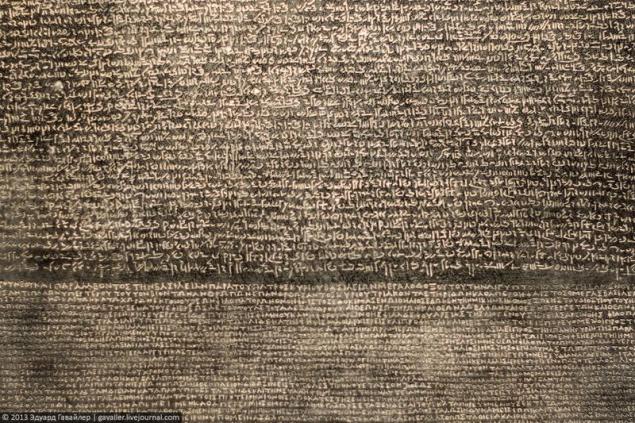
At the entrance visitors are welcomed by a statue of the young Tutankhamun.
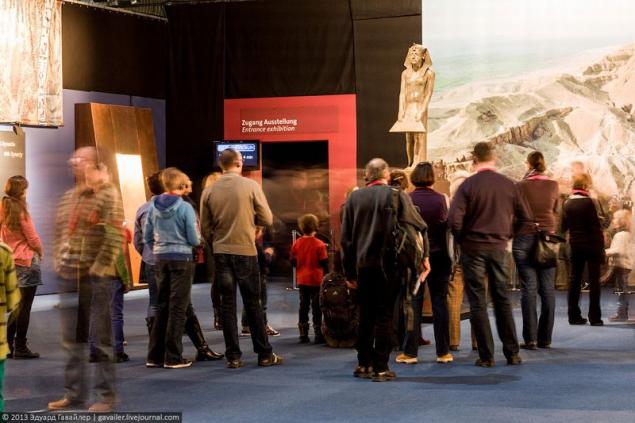
Pharaoh of XVIII dynasty of the New Kingdom rules about 9 years old, with about 1332 to 1323 years BC (died at the age of 19).
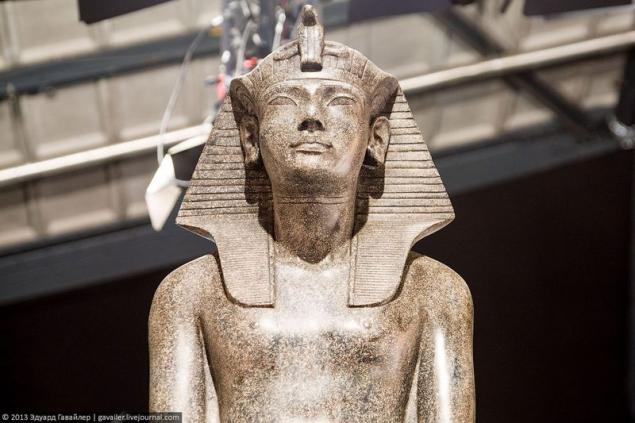
Before they reach their age of 20, Tutankhamun died (and perhaps was killed) and was buried in a tomb in the "Valley of the Kings" near Thebes.
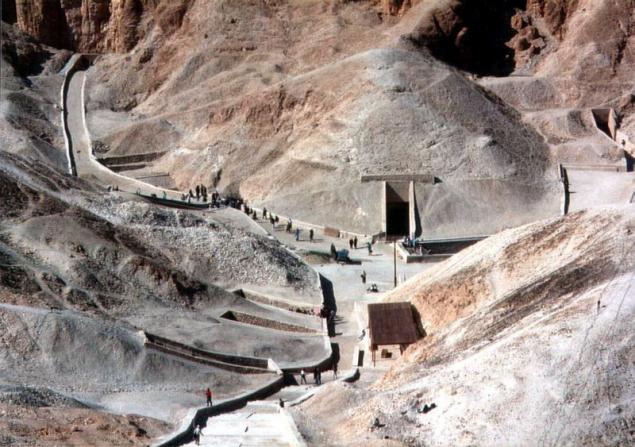
November 26, 1922 English Egyptologist Howard Carter (Howard Carter) and archaeologist Lord Carnarvon were the first in more than three thousand years later in the tomb. All artifacts were photographed, numbered and described.
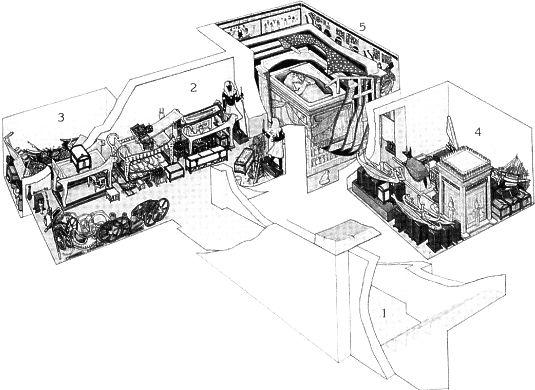
The exhibition shows two interesting film about that time.
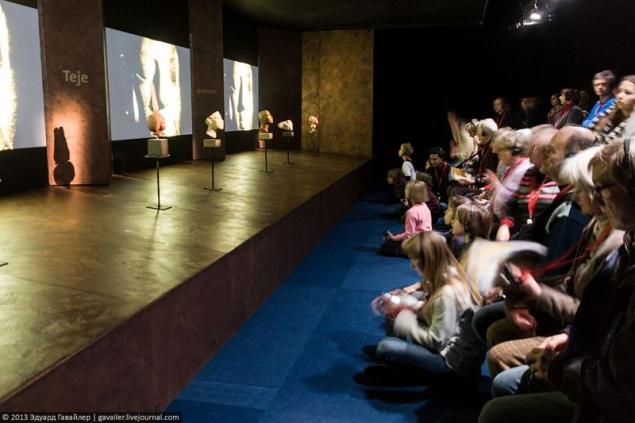
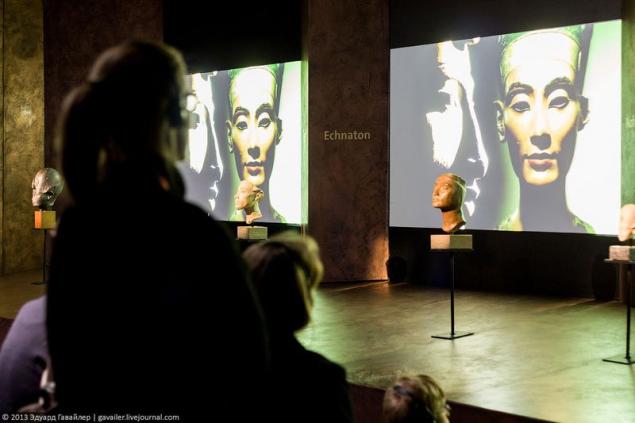
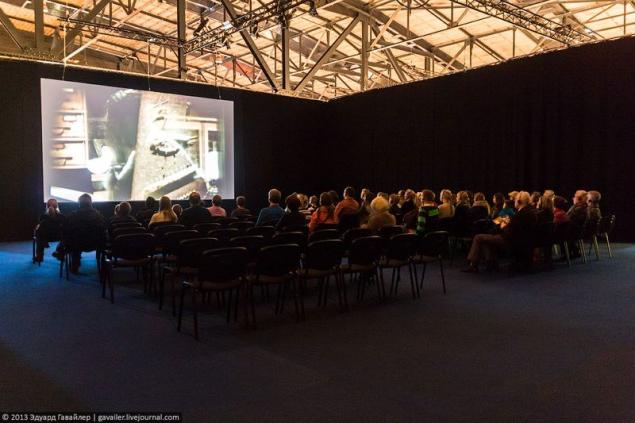
Then the visitor the opportunity to witness with their own eyes the treasures of the tomb.
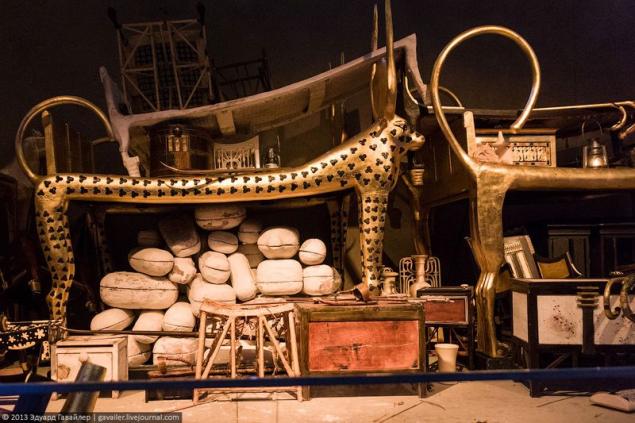
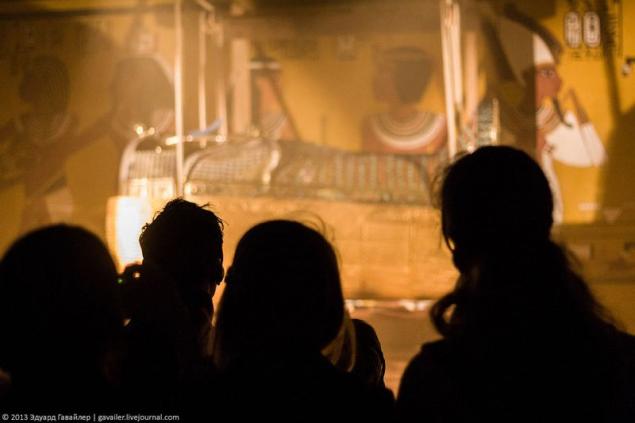
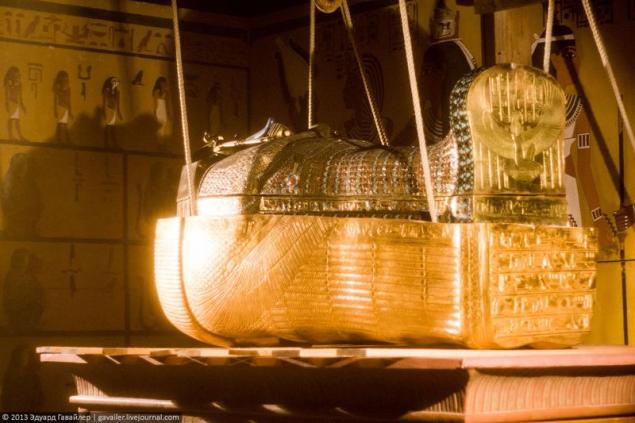
Naturally most of the exposure given to the description of the tomb of the pharaoh. His mummy was placed in three nested coffins. Two of them were gilded wood, and the third of pure gold. Sami sarcophagi were closed in four gilded "cabinets", located also in each other.
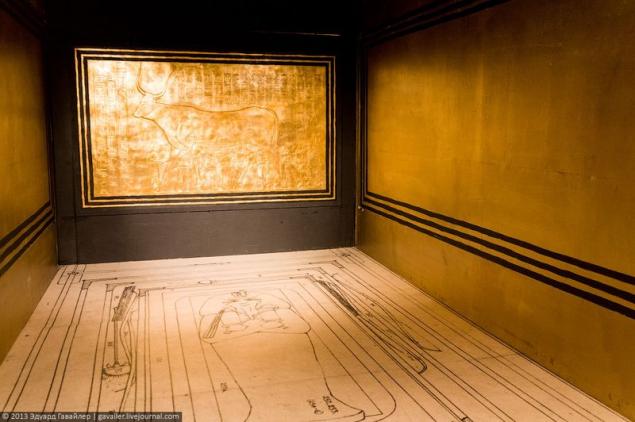
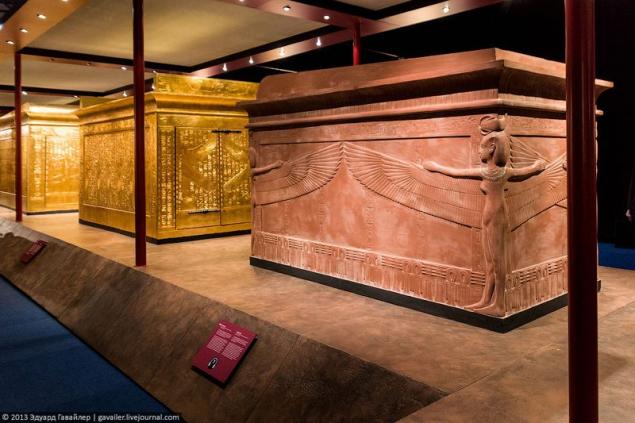
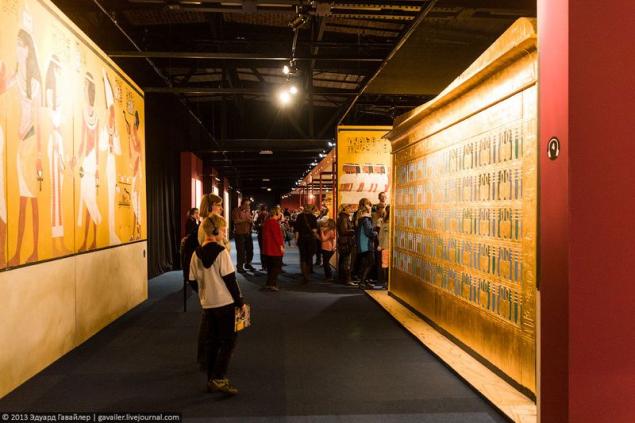
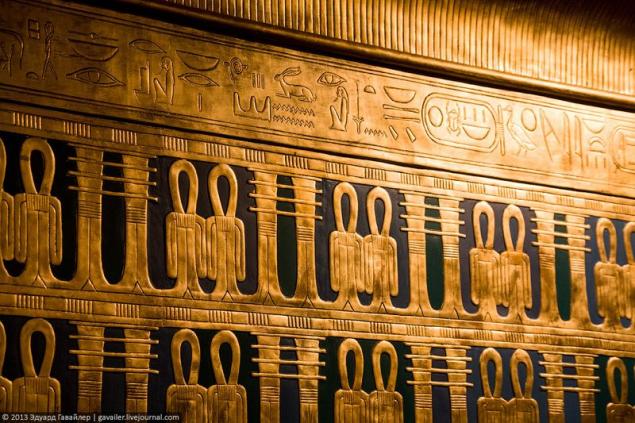
Wall paintings.
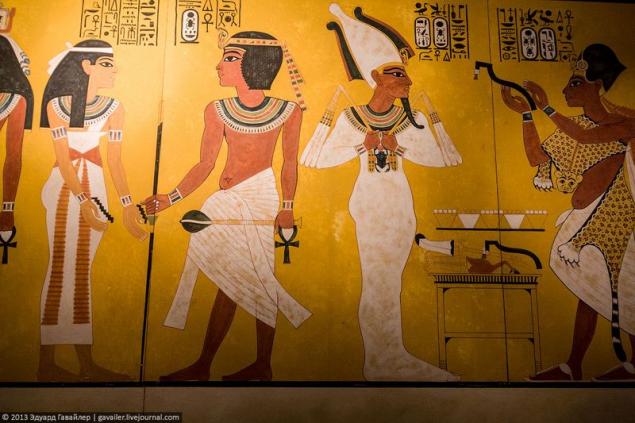
Sarcophagi themselves.
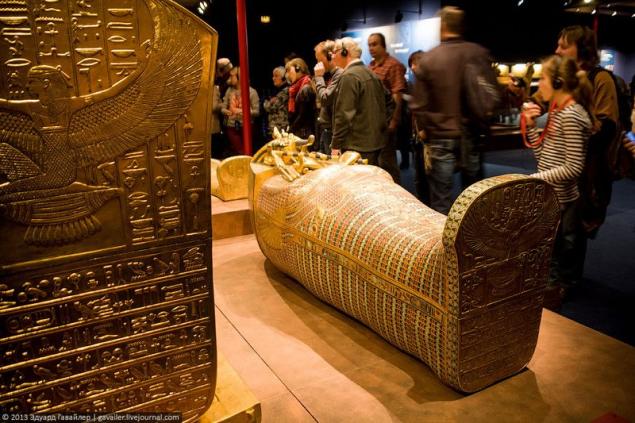
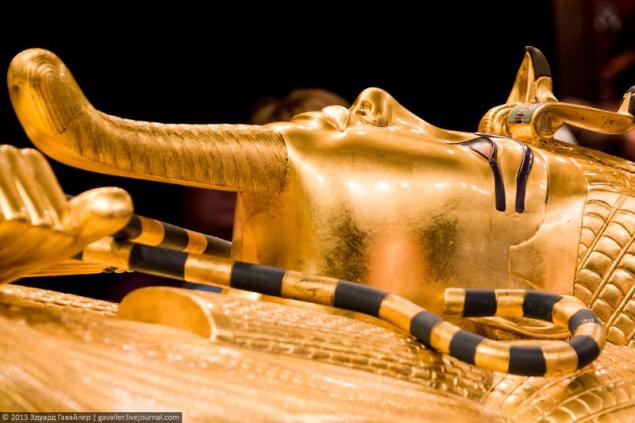
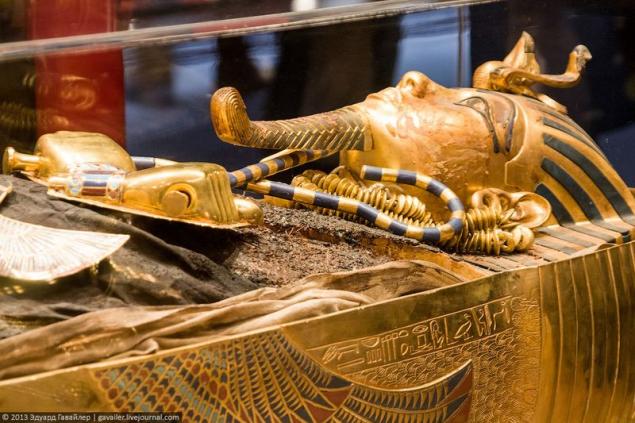
And the famous tombstone mask of Tutankhamun.
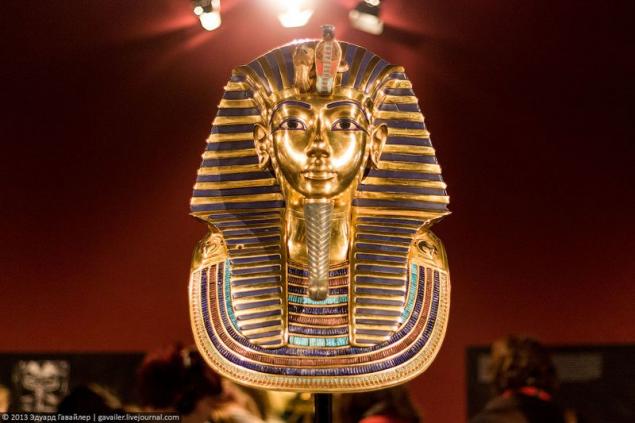
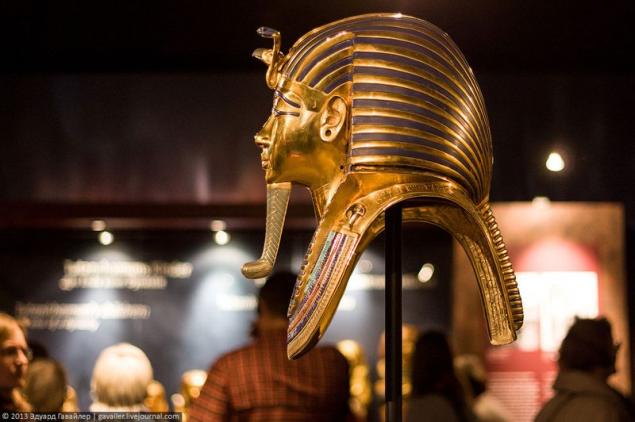
Golden statue of Tutankhamun, riding on the back of a black leopard.
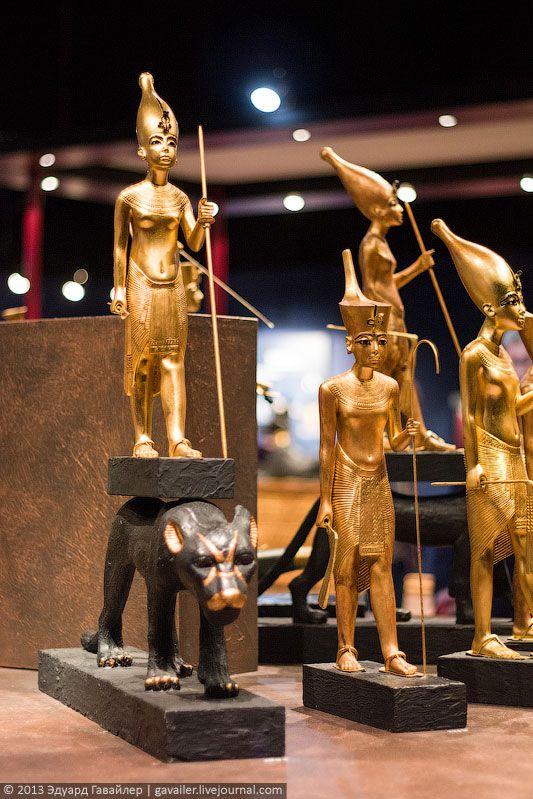
Tutankhamen with a harpoon.
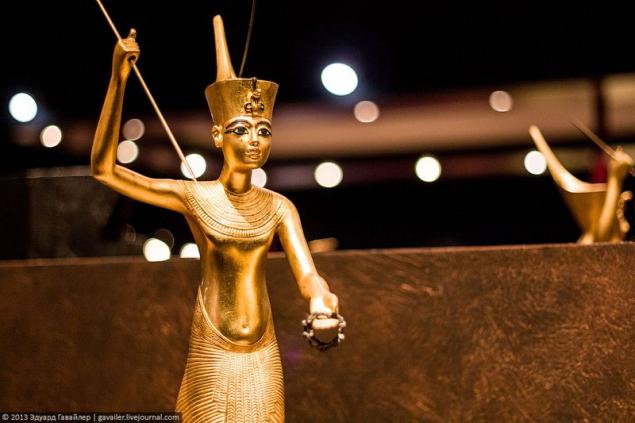
Pharaoh's throne.
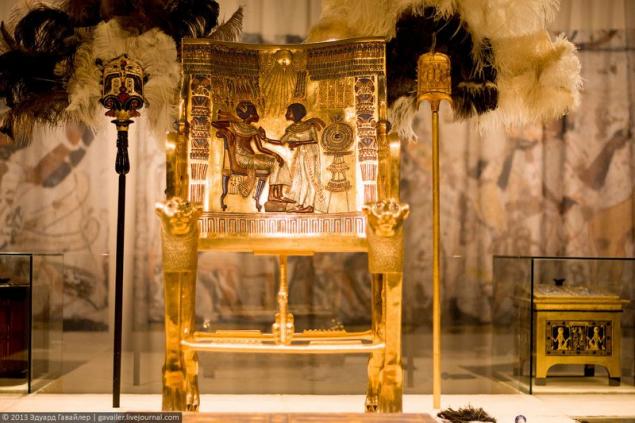
The ceremonial throne.
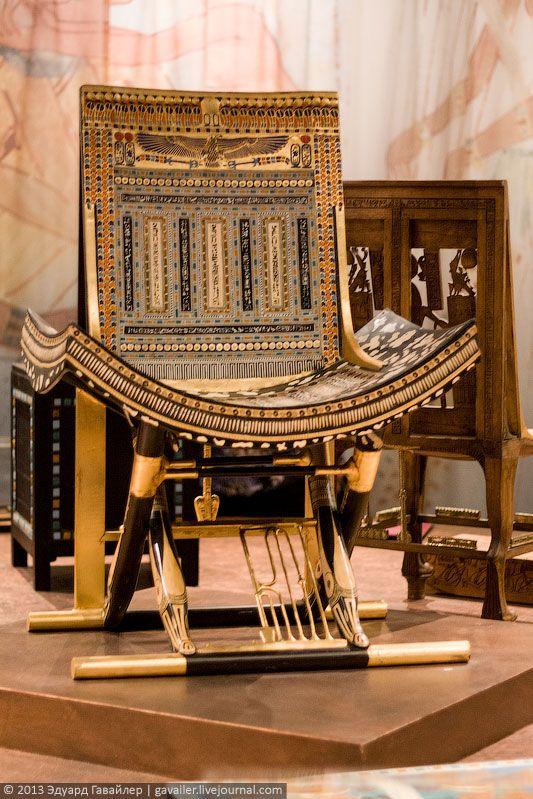
Anubis in the form of a dog.
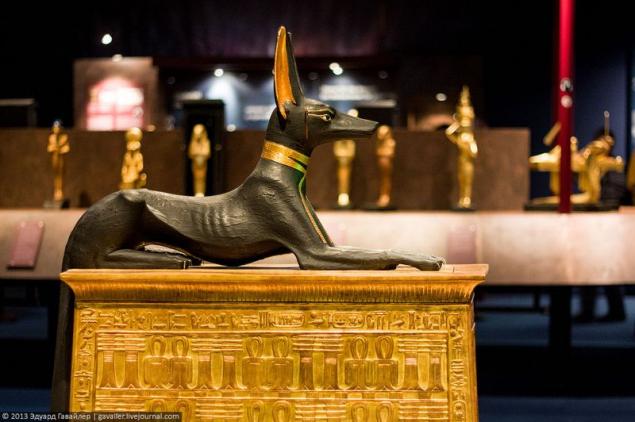
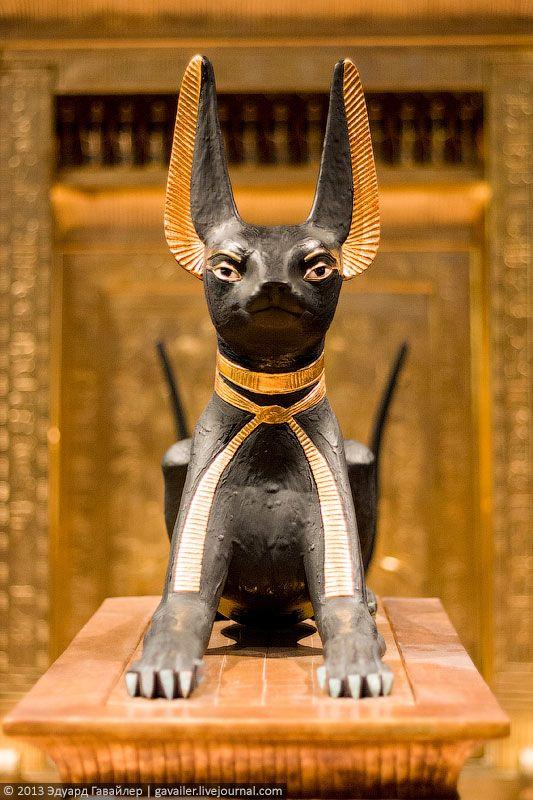
Other treasures.
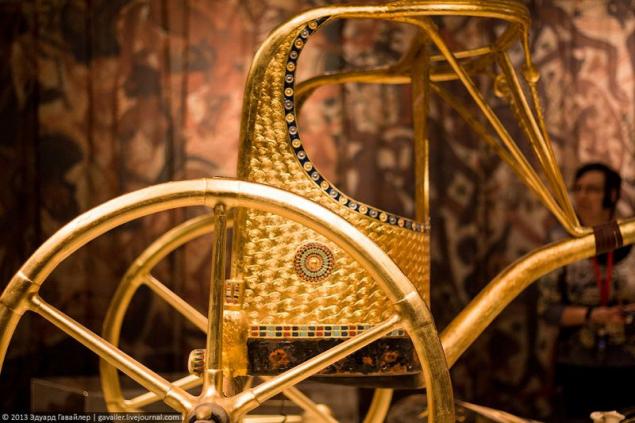
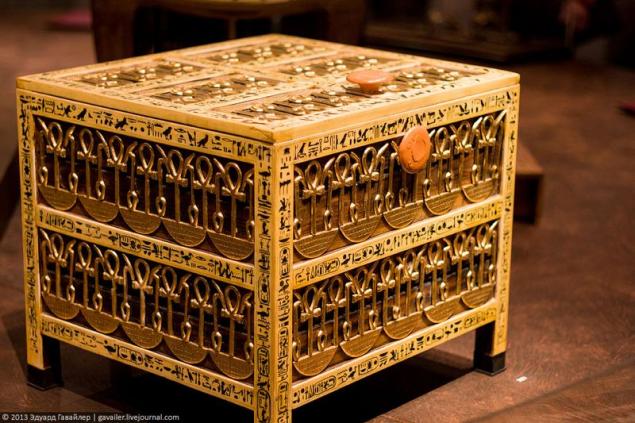
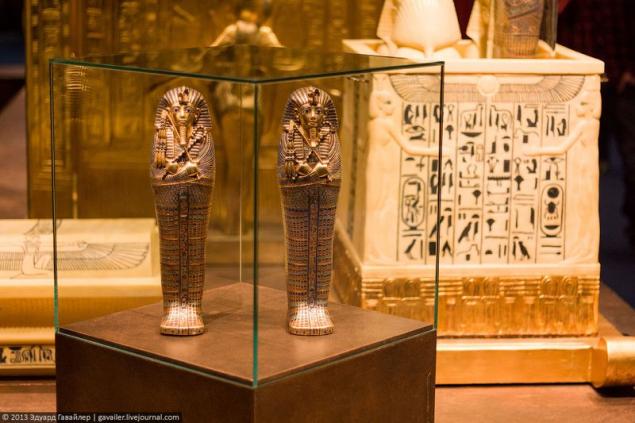
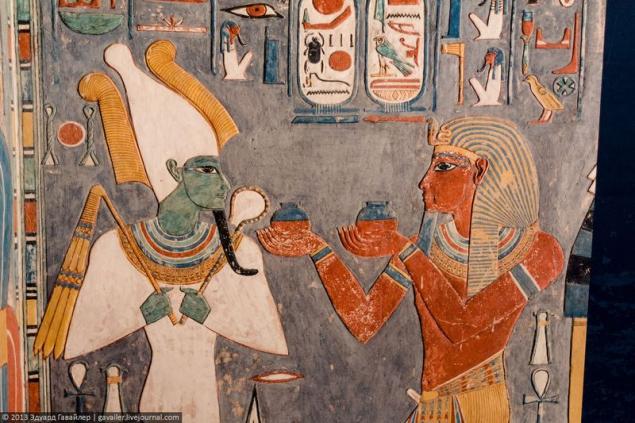
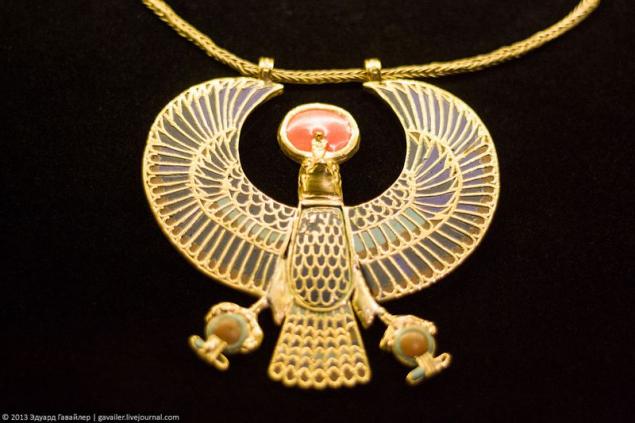
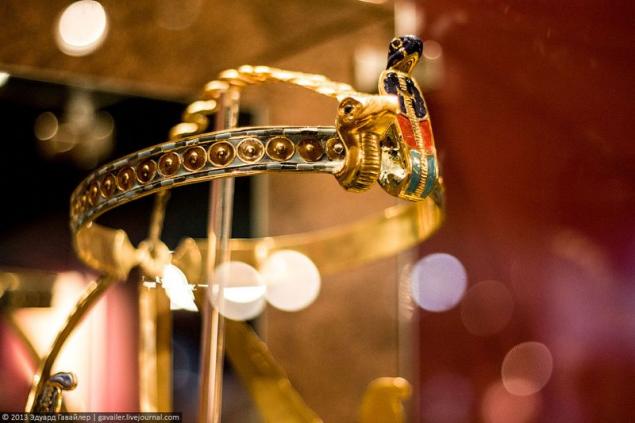
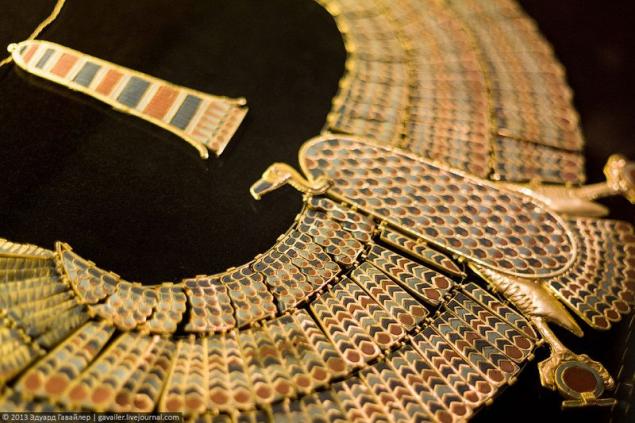
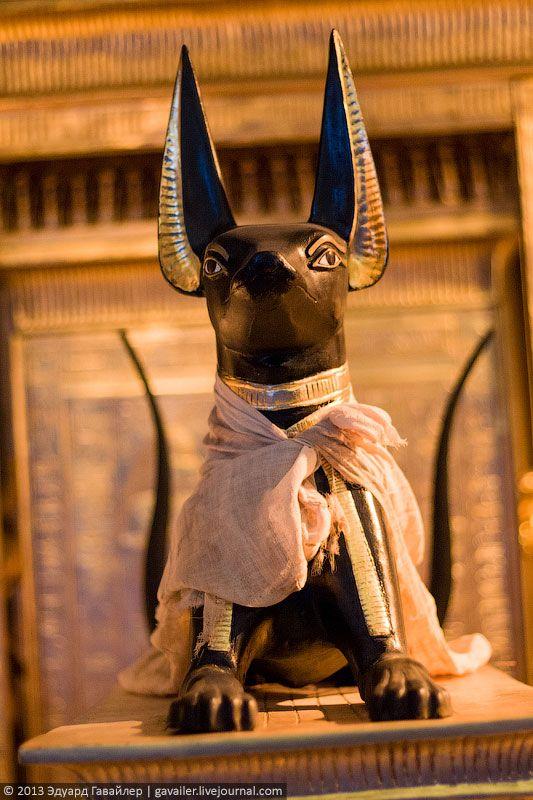
Despite the fact that the exhibition presents only recreated copies and no original, breathtaking, and the impression that you really are in the time and have access to the most intimate and inaccessible. Amazing show, great project. I really liked it.
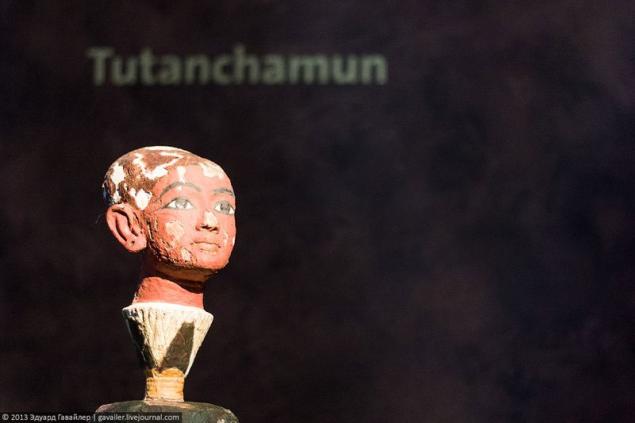
Source: gavailer.livejournal.com

Tomb Tutanhomona, after more than three thousand years come down to us almost intact, is considered one of the most important discoveries in archeology. Since 1922, when Howard Carter discovered the burial in the "Valley of the Kings" near Thebes, a little-known Tutanhomona he became perhaps the most famous pharaoh in history. Inside the tombs of British Carter and Lord Carnarvon found numerous decorations, household items, furniture, works of art of that era, as well as the golden sarcophagus weighing more than 110 kilograms from the mummified body of the young king of ancient Egypt. From March 9 to September 1, 2013 the sarcophagus Tutanhomona and treasures from the tomb can be seen in a unique exhibition in Berlin. Interesting? Then let's go inside.

The exhibition "Tutankhamun. His Tomb and Treasures "(it. Tutanchamun Sein Grab und die Schätze, the official website: www.tut-ausstellung.com ) located in the space of 4000 square meters in the Arena Berlin (Eichenstraße 4 12435 Berlin). Here last year held an international convention tattooists.
At the entrance are given audio guides (available languages: German, English, French and Spanish), which accompany visitors while on the show. Material informative, very many different subtleties and details, all listening with great interest.

Yet going inside the main exhibition area, we plunged into the atmosphere of ancient Egypt.

Rosetta Stone - stove, found at the end of the XVIII century in Egypt near the town of Rosetta. It knocked identical within the meaning of the text in three languages: two ancient Egyptian and Greek. It was he who served as a starting point for deciphering Egyptian hieroglyphics.

At the entrance visitors are welcomed by a statue of the young Tutankhamun.

Pharaoh of XVIII dynasty of the New Kingdom rules about 9 years old, with about 1332 to 1323 years BC (died at the age of 19).

Before they reach their age of 20, Tutankhamun died (and perhaps was killed) and was buried in a tomb in the "Valley of the Kings" near Thebes.

November 26, 1922 English Egyptologist Howard Carter (Howard Carter) and archaeologist Lord Carnarvon were the first in more than three thousand years later in the tomb. All artifacts were photographed, numbered and described.

The exhibition shows two interesting film about that time.



Then the visitor the opportunity to witness with their own eyes the treasures of the tomb.



Naturally most of the exposure given to the description of the tomb of the pharaoh. His mummy was placed in three nested coffins. Two of them were gilded wood, and the third of pure gold. Sami sarcophagi were closed in four gilded "cabinets", located also in each other.




Wall paintings.

Sarcophagi themselves.



And the famous tombstone mask of Tutankhamun.


Golden statue of Tutankhamun, riding on the back of a black leopard.

Tutankhamen with a harpoon.

Pharaoh's throne.

The ceremonial throne.

Anubis in the form of a dog.


Other treasures.








Despite the fact that the exhibition presents only recreated copies and no original, breathtaking, and the impression that you really are in the time and have access to the most intimate and inaccessible. Amazing show, great project. I really liked it.

Source: gavailer.livejournal.com

